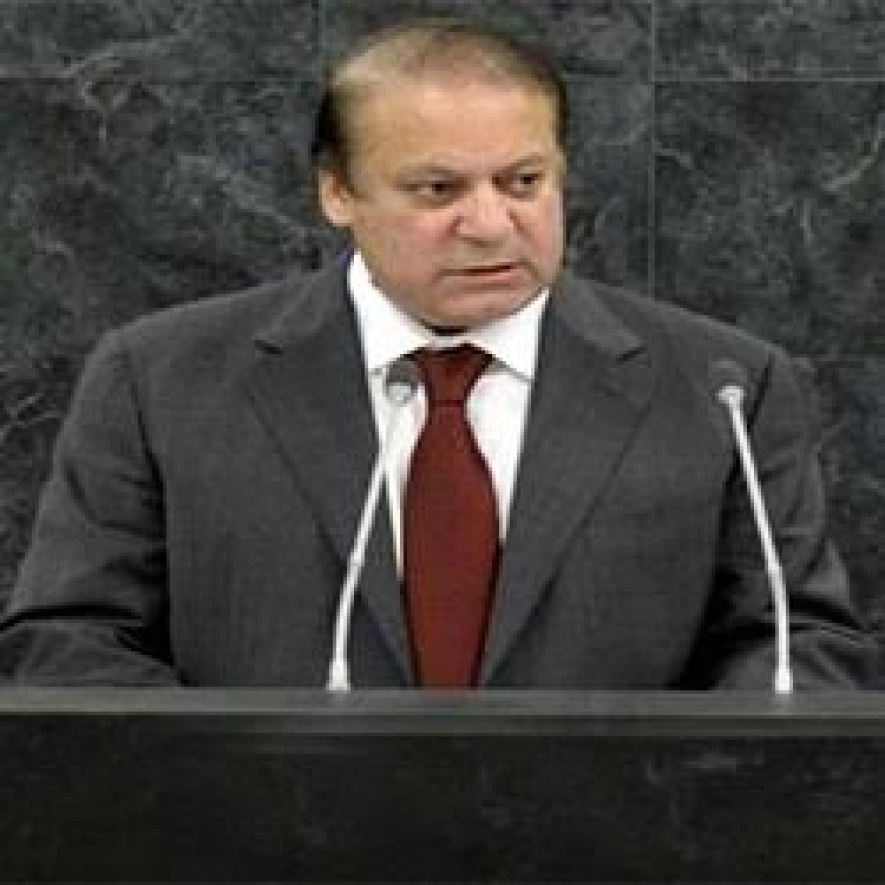Addressing the UN General Assembly session in New York, he proposed that Pakistan and India formalize and respect the 2003 understanding for a complete ceasefire on the Line of Control in Kashmir. For this purpose, he called for UNMOGIP’s expansion to monitor the observance of the ceasefire.
Secondly, he proposed that Pakistan and India reaffirm that they will not resort to the use or the threat of use of force under any circumstances. He pointed out that this is a central element of the UN Charter.
Thirdly, the Prime Minister proposed steps be taken to demilitarize Kashmir.
The Prime Minister said Pakistan and India should agree to an unconditional mutual withdrawal from Siachen Glacier, the world’s highest battleground. Nawaz Sharif said an easing of threat perceptions through such peace efforts will make it possible for Pakistan and India to agree on a broad range of measures to address the peril posed by offensive and advanced weapons systems.
The Prime Minister declared that Pakistan neither wants to, nor is it engaged in, an arms race in South Asia. We cannot however remain oblivious to the evolving security dynamics and arms build up in our region. He said as a responsible nuclear weapon state, Pakistan will continue to support the objectives of nuclear disarmament and non-proliferation.
The Prime Minister said South Asia needs strategic stability and this requires serious dialogue to achieve nuclear restraint, conventional balance and conflict resolution. Referring to the menace of terrorism, the Prime Minister emphasized the need to address the underlying causes of the challenge.
The Prime Minister regretted that some seek to use the global campaign against terrorism to suppress the legitimate right of occupied peoples to self -determination.
He said in 1997 when the Composite Dialogue was launched with India, the two countries agreed that this would encompass two principal items: Kashmir and Peace and Security, along with six other issues, including terrorism. The primacy and urgency of addressing these two issues is even more compelling today.
The Prime Minister said consultations with Kashmiris, who are an integral part of the dispute, are essential to evolving a peaceful solution. He said since 1947, the Kashmir dispute has remained unresolved. UN Security Council resolutions have remained unimplemented. Three generations of Kashmiris have only seen broken promises and brutal oppression. Over 100,000 have died in their struggle for self-determination. The Prime Minister said this is the most persistent failure of the United Nations.
He drew attention of the world community towards ceasefire violations on the Line of Control and the Working Boundary and said wisdom dictates that our immediate neighbor refrains from fomenting instability in Pakistan.
About Afghanistan, he said, Pakistan will persist in the endeavour to help resume the dialogue process and promote peace and stability in Afghanistan. We can, however, do so only if we receive the required cooperation from the Afghan government. Tensions between Afghanistan and Pakistan are in neither country's interests.
He said "Pakistan is the primary victim of terrorism. He said the blood that has been shed - including that of our innocent children - has reinforced our resolve to eliminate this scourge from our society".
The Prime Minister said "Operation Zarb-e-Azb, has made substantial progress in cleansing our country of all terrorists and will conclude only when our objective has been accomplished".
Nawaz Sharif said, "Pakistan supports a comprehensive reform of the United Nations, including that of the Security Council. We need a Security Council that is more democratic, representative, accountable and transparent".
The Prime Minister regretted that the tragedy of Palestine has intensified. The accepted avenue for peace between Palestine and Israel - a two state solution - appears further away today than ever before, due to the intransigent stance of the occupying power.
The Prime Minister said China-Pakistan Economic Corridor will spur regional economic integration and bring prosperity to the entire region and beyond. This is an inspiring model of South-South cooperation that should be emulated. (PBC)




















